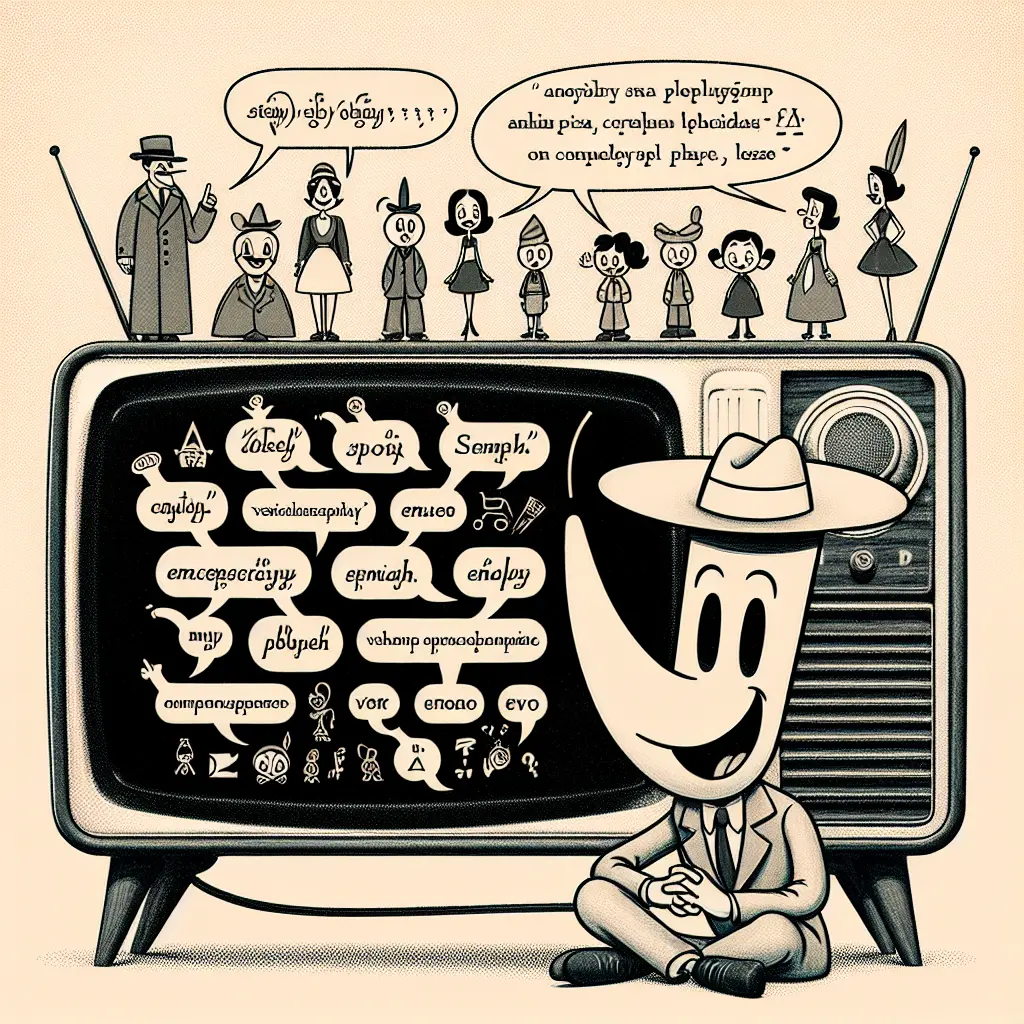
From "D'oh!" to "Eat my shorts," The Simpsons has not only entertained audiences for decades but also left a lasting imprint on the English language. As we explore The Simpsons' influence on language, it's clear that this animated sitcom has done more than just make us laugh—it has woven its phrases and linguistic quirks into the fabric of everyday communication.
The Linguistic Legacy of The Simpsons
Since its inception in 1989, The Simpsons has been a treasure trove of catchphrases that have infiltrated our vernacular. Simpsons popular phrases like "D'oh," Homer Simpson's iconic grunt of irritation, was so widely adopted that it found its way into the Oxford English Dictionary in 2001. But the cultural impact of The Simpsons stretches beyond simple exclamations.
How The Simpsons Shaped Language
The show's creative team, with their finger ever on the pulse of societal shifts, has a knack for crafting lines that resonate broadly. Phrases such as "Meh" and "Worst. Episode. Ever." have become commonplace in describing indifference or disappointment. This demonstrates how The Simpsons shaped language, turning what could be throwaway lines into lasting linguistic expressions.
The Simpsons and Modern Slang
Beyond specific phrases, The Simpsons and modern slang have a symbiotic relationship. The show both mirrors and influences contemporary speech in a way that few other media properties can claim. It's a testament to the writers' understanding of language’s evolving nature, making the dialogue feel both timeless and timely.
Iconic Simpsons Quotes
The array of iconic Simpsons quotes also serves as a mirror to societal changes and concerns, embedding deeper meanings within seemingly humorous one-liners. For instance, Lisa Simpson's environmentally conscious and socially aware quips have made her a voice of reason, echoing the sentiments of younger generations concerned with these issues.
The Simpsons Contribution to English
It’s not just about adding words or phrases to our lexicon; The Simpsons contribution to English extends to influencing speech patterns and intonations. The sarcastic delivery of Bart or the intellectual quips from Lisa have encouraged viewers to adopt similar speech nuances in daily conversation.
The Simpsons and Pop Culture Language
Intertwined with real-world events, the show often parodies and thereby captures essential elements of our society, influencing The Simpsons and pop culture language significantly. For instance, during recent events at San Diego Comic-Con, where Kamala Harris made an unexpected appearance, fans likened it to something straight out of a Simpsons episode—unexpected and dramatically humorous (source).
The Simpsons Linguistic Effect
Exploring The Simpsons linguistic effect further, it's clear that the series' reach extends into various aspects of culture and media. At the 2024 Emmys, shows like X-Men ’97 and What We Do in the Shadows, which have their roots in genre storytelling similar to many classic Simpsons episodes, scored big, suggesting a shared DNA in genre storytelling that impacts broader media narratives (source).
Recent Updates and Their Linguistic Implications
Reflecting on recent episodes and character developments also offers insights into the show's ongoing linguistic creativity. The return of characters like Uncle Herb, voiced by Danny DeVito, hints at revisiting themes of failure and redemption, wrapped in layers of humor that may yet again contribute new phrases or highlight old ones in contemporary dialogue (source).
Moreover, plotlines like Milhouse finally taking Lisa out in his Lamborghini not only serve as fan service but also inspire dialogues and discussions that resonate with aspirational and fantastical elements often found in youthful slang (source).
Conclusion: The Enduring Impact
As we've seen, The Simpsons does more than reflect the language of the times; it shapes it, molds it, and sends it back into the world changed, enriched. Whether through introducing phrases into the dictionary or influencing speech patterns and pop culture references, the show continues to be a linguistic trendsetter.
In closing, just as Homer has stumbled and Bart has pranked his way into our hearts, so too have their words found a home in our conversations. It’s a testament to the enduring legacy of Springfield’s first family—a legacy that speaks volumes, quite literally.
Signing off with a hearty "Woohoo!"—Rachel Winslow